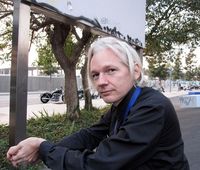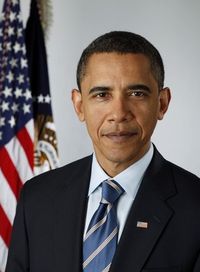 Ever since the Web was spun people have been buzzing about the idea of "cyberwar."
Ever since the Web was spun people have been buzzing about the idea of "cyberwar."
I have been among them. Over the last 15 years I have tracked online battles over East Timor, over Lebanon and Israel, over China and Chechnya. Every major conflict comes with a cyber-component these days.
But most are cyber in nature. Oh noes, you can't get to a particular site. Or maybe your connection goes away for a while. Pinpricks.
Real cyberwar doesn't just take place in cyberspace. Real cyberwar takes place in meat space, and is a concentrated effort by government to enforce local law on a global scale.
When Chinese or Iranian bloggers are arrested and put in jail to rot, that's cyberwar. When it becomes a crime to pass on valuable information, or to have it on a server, that's cyberwar.
Cyberwar has come to America.

Example or martyr?
Not everyone agrees with this new policy. I don't. Journalists are trained not to, knowing that opacity is always a cover for great crimes. The fact that some have endorsed this war (like David Gewirtz) merely proves the diversity of the trade. You don't have to believe in media values to get media work. (Sometimes believing in those values actually hurts your career. In the short run.)
I suspect the President came into office with a liberal attitude toward the Internet. But all of us have our limits. Once our limit is passed, we all become Chinese.
For some of us, that limit is child pornography. The idea of a child being raped or abused is the worst kind of horror. The idea of someone enjoying that horrific idea is terrifying. Most everyone I know supports extreme measures against such people.
For the President the limit is national security. America is placed at a disadvantage when its diplomats, its police, or its military feel constrained in ways our enemies are not. So every President is told, and so (apparently) every President comes to beleive.

But will it?
Would killing Julian Assange stop the next leak? Will killing Bradley Manning stop it? Will driving the use of the BitTorrent protocol further underground cause more people to buy music rather than just downloading and hoarding it?
That's the question. When real casualties start piling up on the side of those who believe in an open Internet, will the rest of us disappear, as the Iranian dissident movement appears to have disappeared?
Or will we, like that movement, just move further underground, become further radicalized, maybe become violent?
What the Generals have told the President is he has nothing to fear from such a reaction, that our military and police forces are equipped to deal with any eventuality in terms of violence, and that activists are no threat.
We'll see. Every leader is told that when he decides to get his war on.









